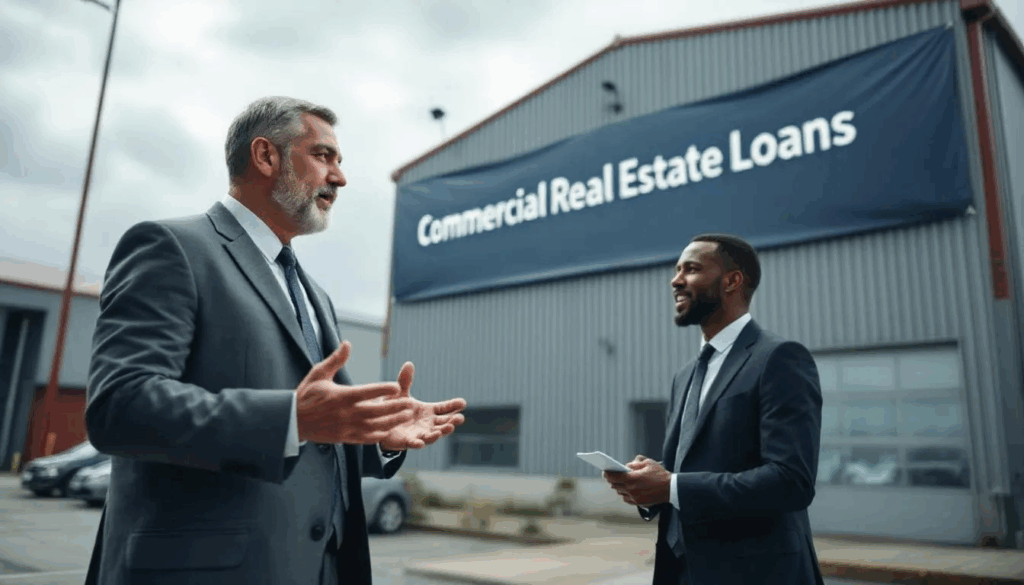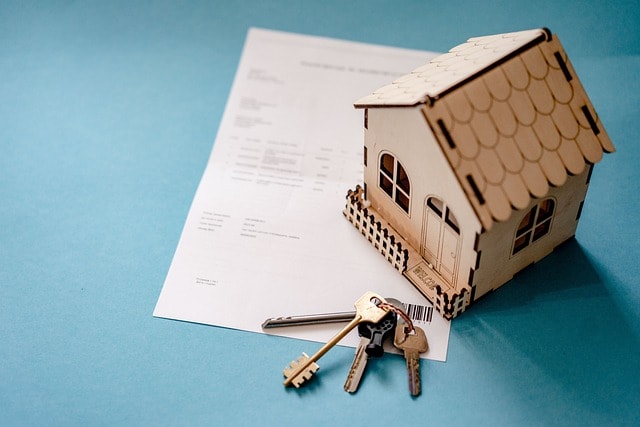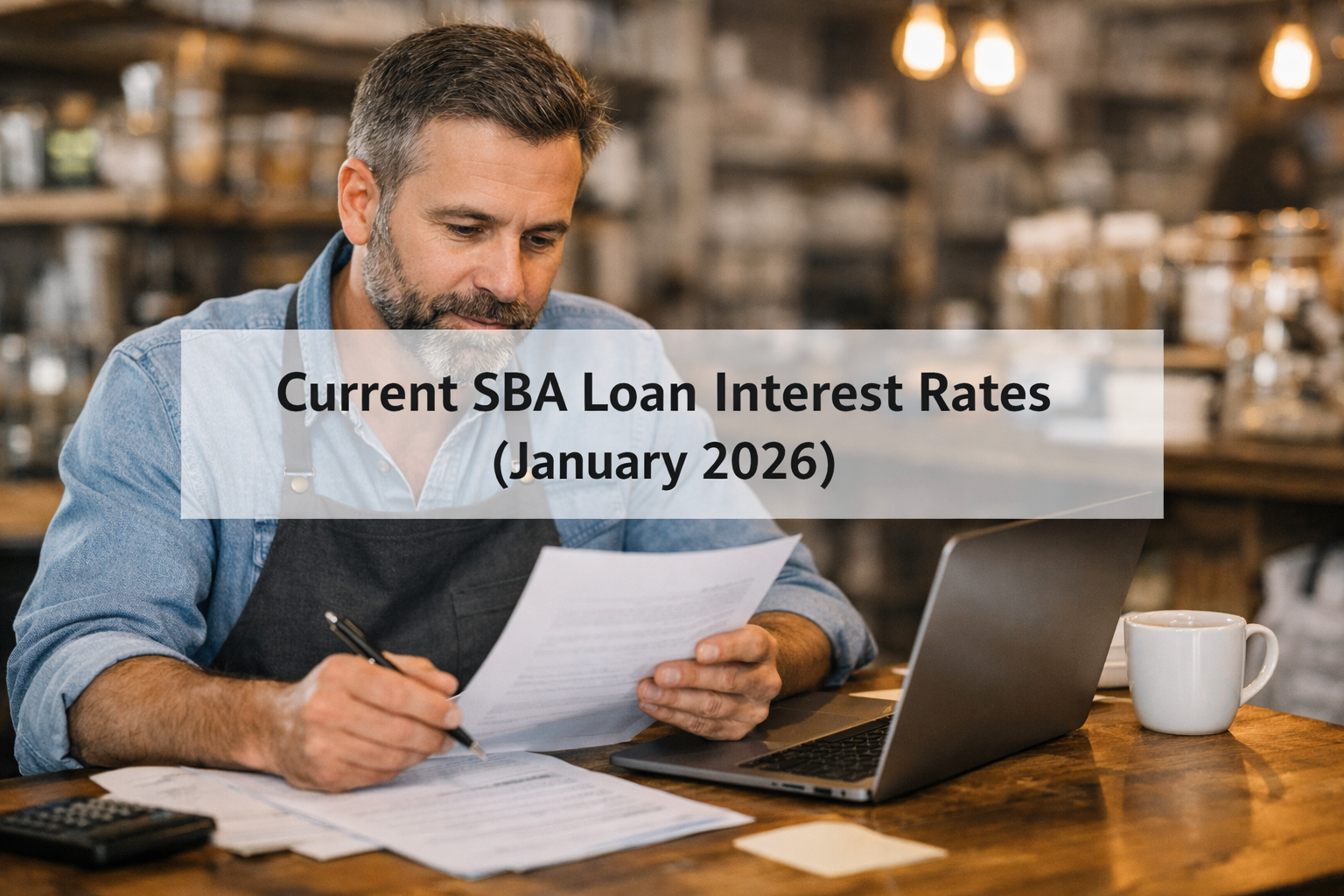What are Commercial Real Estate Loans?
A commercial property loan is a type of business loan specifically designed to purchase, build, or renovate a property used for business purposes. At least 51% of the property in question must be used to support the business, such as a storefront, office, warehouse, or other similar facilities. Small business owners can also use commercial real estate loans to refinance commercial properties.
The loan amount you receive is for the cost of the property or construction project. You will secure the loan using the financed property as collateral. Many commercial real estate loans are non-recourse, meaning personal assets are not at risk if the loan goes into arrears. First-time investors are more likely to be offered recourse loans, which may have more competitive terms due to reduced lender risk.
In some ways, a commercial real estate loan, also known as a commercial mortgage, is similar to a residential mortgage. You purchase the property upfront with the loan, and the lender holds a lien on the property until it’s paid off. If you default, the lender claims the property in foreclosure to recoup its losses.
Small businesses may be interested in commercial property loans for various reasons. While the cost and commitment are higher than renting, you invest in a long-term asset that appreciates in value over time.
How do Commercial Real Estate Loans work?
Small business owners have several options for financing a commercial property acquisition or renovation. Commercial real estate loans typically require a larger down payment than residential mortgages.
There are several steps in the process:
- Determine how much you need for the property or properties.
- Find the best loan option for your commercial mortgage.
- Find a commercial real estate lender.
- Ensure you qualify with the lender.
- Apply with the lender.
- If approved, accept the loan offer and get funded.
- Repay the loan per the loan agreement and mortgage payments.
Traditional Commercial Mortgage Loans
Some commercial banks and credit unions offer mortgage loans to businesses for purchasing commercial property. Similar to residential mortgages, these are secured loans that use the financed property as collateral.
Most small business owners need good to excellent credit and an established business history to get approved for a commercial loan. If eligible, it’s the most direct and easy-to-manage loan option. The Interest rate for this type of loan is typically between 5% and 7%.
Small Business Term Loan
Borrowers who can’t qualify for a commercial mortgage from a bank could consider a term loan. Many online lenders offer business term loans.
Term loans carry borrowing amounts ranging from $10,000 to $5 million. Terms are typically 3-10 years, with factor rates starting at 5%. Credit approval for SBA financing normally requires excellent credit, a high annual revenue, and at least two years of business experience.
Small Business Administration (SBA) Loans
The U.S. Small Business Administration (SBA) administers the SBA loan program, which is often regarded as the gold standard of business financing. The SBA partially guarantees the loans, allowing lenders to offer higher borrowing amounts at lower interest rates and longer repayment terms. SBA loans are typically provided at variable interest rates for terms of up to 25 years.
The primary SBA loan for commercial real estate is the SBA 504/CDC loan. It provides up to $5 million for commercial property. You can also use the SBA 7(a) loan for commercial real estate. SBA 7(a) interest rates typically range from the Prime rate plus 2.5% to the Prime rate plus 4.75%. SBA 504 loan interest rates usually range from 3% to 4%.
Bridge loans
A bridge loan is a type of short-term financing used to cover the gap until you qualify for long-term loans. It is used primarily by real estate investors or small businesses attempting to outbid cash buyers. You’ll receive a large upfront sum, but you must repay it quickly. You will need to refinance if you can’t repay the loan in the shortened timeframe. Bridge loan interest rates typically range from 4.2% to 13%.
Hard money loans
A hard money business loan is similar to bridge financing, except that the funds come from a private company rather than a traditional lender, such as a bank, credit union, or online lender. Hard money loans typically have shorter loan terms and higher interest rates than other types of loans. Borrowers who can’t get bridge financing from a lender are the most likely to use a hard money loan. Hard money loan interest rates typically range from 10% to 18%.
CMBS Loans
Commercial mortgage-backed securities (CMBS) loans are a type of real estate loan where the lender bundles multiple loans into a single security and sells it to investors. Conduit lenders typically offer these loans and are often used for income-generating properties, such as office buildings, shopping centers, and multifamily housing.
CMBS loans are underwritten on the financial strength of the asset held as collateral. This means that lenders focus more on the property’s cash flow and value than on the borrower’s personal financial situation.
CMBS loans generally have terms of five to 10 years, with amortization periods of up to 30 years. They may come with prepayment penalties such as defeasance or yield maintenance, and are ideal for stabilized commercial properties that generate consistent income.
Debt Fund Loans
Debt fund loans are commercial real estate loans provided by private investment funds rather than traditional banks. These lenders are more flexible and can offer tailored solutions for complex or transitional properties.
Debt fund loans cover financing scenarios that many banks may be hesitant to undertake. This includes ground-up construction, property repositioning, or borrowers with less-than-perfect credit.
These loans are typically interest-only, short-term (1 to 5 years), and carry higher interest rates than bank loans—but offer quicker funding and fewer restrictions, making them a popular option in competitive or time-sensitive markets.
Commercial Construction Loans
Commercial construction loans are specialized financing solutions that provide funding for building new structures or renovating existing ones for business use. Unlike traditional real estate loans that fund a one-time property purchase, these loans provide financing in stages as the construction progresses—typically referred to as “draws” tied to project milestones.
These loans are ideal when your business needs outgrow your current space or when you’re developing a commercial property from the ground up. Whether you’re constructing office space, retail, industrial facilities, or multifamily housing, the funds can cover land acquisition, labor, materials, and other project-related costs.
Typical terms for commercial construction loans include short durations—usually 6 to 36 months—with interest-only payments during the construction phase. Once the project is completed, borrowers often refinance into a permanent mortgage or pay off the balance via a balloon payment.
Borrowers should also account for closing costs, which can include appraisal fees, permits, legal fees, and inspection costs. Since these loans are riskier, lenders often require detailed construction plans, cost estimates, and contractor credentials during the approval process.
How can my small business qualify for a Commercial Real Estate Loan?
When evaluating your loan application, lenders will look at your personal and business finances. Let’s go over the general requirements for each. Complete an application for a commercial real estate loan in person or over the phone.
Personal Finances
Lenders typically examine your personal financial history to determine creditworthiness. Many lenders require a credit score of 600 or higher. If applying for an SBA loan, you’ll typically need a credit score between 650 and 700.
While your credit score gives lenders an idea of your creditworthiness, most will examine your credit history in more detail. In particular, they will look for any foreclosures or bankruptcies in your credit history.
Another essential part of your financial picture is your debt-to-income ratio (DTI). Lenders will also examine your overall net worth.
It would be best to examine your overall assets, particularly those that are liquid or can be easily converted into cash. Many commercial mortgage lenders consider the borrower’s personal assets for collateral. Lenders will go over your bank accounts and other assets.
Business Finances
Commercial real estate lenders will look at your business credit score. Several agencies report business credit scores, with most ranging from 0 to 100. You will need a credit score of 75 or better to qualify in most cases.
Lenders will also examine your business assets and the collateral you can offer as security. They will want to know if assets such as equipment, invoices, or cash reserves could pay off the loan.
Most lenders will look at your gross revenue, net operating income (NOI), and cash flow. In addition to your NOI, lenders will also calculate your debt service coverage ratio. They need to ensure you have the available cash to support loan repayment.
Lenders prefer to work with more established businesses since they have a proven track record. Most lenders will require at least two years in business, although some might accept loan requests from younger companies.
Lenders typically require a minimum annual revenue to qualify for a commercial real estate loan. The loan-to-value ratio is a key factor that lenders consider when determining loan amounts.
How to apply for a Commercial Real Estate Loan:
You can apply for a commercial real estate loan through our network of lenders, utilizing an SBA loan or a business term loan. Follow these steps to apply.
Step 1: Ensure You Qualify
You’ll need a credit score between 650 and 700, as well as a healthy and consistent cash flow. You will also need documentation of the property you’re interested in, such as the address, property type, owner-occupancy ratio, total sale price, plans for renovation, and a list of revenue-generating tenants (if any).
Step 2: Gather Your Documents
Be prepared to provide:
- Driver’s License.
- Business license or certificate.
- Voided Business Check (for business bank account information).
- Bank Statements.
- Credit Report/Statement of Personal Credit History.
- Business Tax Returns.
- Credit Card Processing Statements.
- Personal Tax Returns – 3 Years.
- Business Tax Returns – 3 Years.
- Business Plan (Not in all cases).
- Personal Financial Statement.
- List of Real Estate Owned or Business Leases, if applicable.
- Debt Schedule/Loan/Rent/Lease Documentation
- Deeds/Title/Ownership documentation for any collateral/Security.
- Current Profit & Loss Statements and Balance Sheet Year-to-Date.
- A/R and A/P Reports.
- United Capital Source 1 Page Application.
Step 3: Fill Out the Application
You can begin the application process by calling us or filling out our one-page online application. Either way, you’ll be asked to enter the information from the previous section along with your desired funding amount.
Step 4: Speak to a Representative
Once you apply, a representative will contact you to explain the repayment structure, rates, and terms of your available options. This way, you won’t have to worry about any surprises or hidden fees during repayment.
Step 5: Receive Approval
Commercial Real Estate Loans through our network generally take 3-5 weeks to process. Once your file is approved and closed, the funds should be deposited into your bank account within a few business days.
If and when you’re approved for a business term loan, funds should appear in your bank account in 1-2 business days.
What are the advantages of Commercial Real Estate Loans?
Commercial loans for real estate enable small businesses to acquire the buildings or land necessary for their operations. The property becomes an asset that contributes to the company’s overall equity, particularly as the loan is repaid.
Owning the property where you do business also gives you more freedom to renovate and customize the location. You can add whatever signage, equipment, machinery, or facilities you need without needing approval from a rental company that owns the lease.
While you must use 51% of the property for your own business, you can lease out the remaining portion for extra revenue. For example, if you purchased an office building, you must use most of it for your business, but you can rent the remaining office space to other companies.
A wide range of lenders and loan options is available for commercial mortgages. You can obtain a low-cost SBA loan or expedite the process with an online lender that offers quick application and funding times.
What are the disadvantages of Commercial Real Estate Loans?
All loans involve risk, and commercial loans carry high borrowing amounts. Defaulting on a loan could put both your business and personal finances at risk.
Most lenders and commercial real estate loans require a significant down payment. Generally, you can expect to put down 25% of the purchase price. It might be possible to put down as little as 10% for SBA loans. You may need to provide additional collateral and sign a personal guarantee as well.
While some online lenders offer quick applications with minimal documentation, most commercial loans will require a lengthy application process. SBA loans, in particular, are notorious for complex applications, exhaustive documentation, and lengthy approval and funding times.
Most lenders will require a good to excellent credit score, at least two years in business, and high annual revenue. It can be difficult for some small businesses to meet those requirements.
Unless you obtain an SBA loan, most commercial real estate loans typically carry terms of 5 to 10 years, but the amortization period is usually over 25 years. This means that while your monthly payment is lower, you will typically have a balloon payment due at the end of the loan to cover the remaining balance.
Commercial real estate loan pros & cons
Pros:
- The business owns the property, adding to its overall assets.
- You can use the equity in a property for further financing.
- Gives you more control over what to do with your commercial property.
- Many loan and lender options are available.
- Potential to lease out up to 49% of the property for extra income.
Cons:
- Increased risk of taking out large loan amounts.
- Requires a 25% down payment in most cases.
- Might require additional collateral and a personal guarantee.
- Most lenders have high qualification requirements.
- SBA real estate loans take a long time to approve & fund.
- Non-SBA loans only have terms of 5-10 years, usually resulting in a large balloon payment at the end of the loan.
Frequently Asked Questions
Here are the most common questions about commercial real estate loans.
What constitutes commercial property?
Commercial properties include buildings or land used for business purposes. In most states and municipalities, the land or property must be zoned for commercial use.
Examples of commercial properties include, but are not limited to:
- Storefronts and shops.
- Service centers and mechanical garages.
- Malls and strip malls.
- Warehouses.
- Factories and refineries.
- Office buildings and corporate centers.
- Industrial complexes.
How does Interest and Amortization work on CRE Loans?
Understanding how interest and amortization work is crucial when obtaining a commercial real estate (CRE) loan. These two factors determine how your monthly payments are allocated and what your total borrowing cost will be over the life of the loan.
Most commercial real estate loans come with either variable or fixed interest rates. Interest is typically calculated on the remaining loan balance and is included in your monthly payments along with a portion of the principal. The actual interest rate you receive depends on your credit score, the loan amount requested, and your cash flow.
As the loan matures, the portion of the payment that goes toward interest decreases while the amount applied to principal increases. Most amortization schedules gradually decrease the portion of a payment that goes toward interest and increase the portion that goes toward principal over time.
Amortization refers to the process by which the loan balance is gradually paid off in installments over the loan term. Commercial loans often have amortization periods that are longer than the loan term itself. For example, you might have a loan term of 5 or 10 years with a 25- or 30-year amortization schedule, resulting in a balloon payment at the end of the term.
It’s important to note that interest isn’t charged after the maturity date of a loan, when the final principal payment is made. Borrowers should prepare for any balloon payment due at maturity to avoid refinancing under unfavorable terms.
To plan and evaluate payments, a commercial mortgage calculator enables users to input key loan terms, including the loan amount, interest rate, term, and amortization schedule. This tool helps estimate monthly payments, total interest costs, and the amount due at maturity.
How long are the terms for a Commercial Real Estate Loan?
Most commercial real estate loans carry terms ranging from 3 to 10 years. SBA commercial real estate loans can have terms of up to 25 years. Understanding the terms is essential when calculating costs on a commercial loan calculator.
Can I get a Commercial Real Estate Loan with bad credit?
Having bad credit (below 600) can make obtaining a commercial real estate loan difficult, but it’s not impossible. There are options for business loans with bad credit to consider. You should be aware that many of these loan structures carry higher interest rates and fees. One way to think of bad credit business loans is as a bridge financing option until you can afford a more beneficial loan or refinance the loan with a lower interest rate.
Commercial Real Estate Loan – Final Thoughts
Small business owners have numerous options for lenders and loans to finance the purchase of commercial real estate. If you can’t qualify for a traditional commercial loan from a bank, you can consider SBA loans, term loans, bridge financing, or hard money loans.
The primary consideration is whether purchasing the property is the right move for your business and justifies the associated financing costs. You must also ensure your business has the cash flow to support repayments.
Contact us if you have any questions or are ready to apply for a small business loan. Our loan executives can help you determine the right financing package for your commercial real estate needs.













